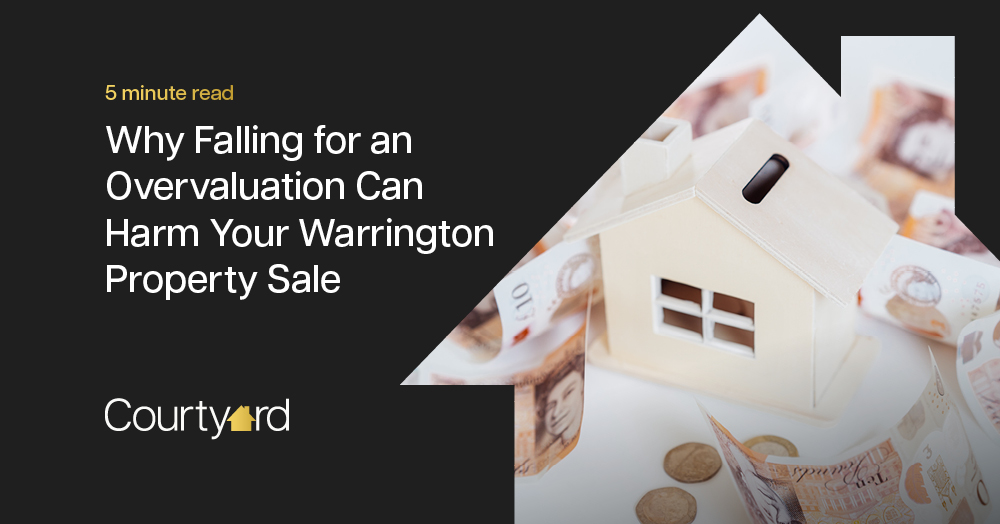Here are some home truths about property overvaluations that you must read if you're thinking about listing your property.
If it's too good to be true…well, you know how the rest of the saying goes.
In fact, you've probably used it when a friend or family member has asked you for financial or business advice.
But even if you're usually the first to spot when something's not quite right, that doesn't mean you're immune to falling for an overvaluation.
There's something about the emotional nature of selling a property – there's so much at stake, and we don't do it very often – that means even the savviest operator can get drawn in.
So let's look at what overvaluation is, how it negatively impacts a property sale and how to avoid the practice.
What is an overvaluation?
Overvaluation is when the price of a property is significantly inflated beyond market norms.
BBC Radio 4's consumer programme, You and Yours, recently discussed overvaluation and used this real-life example.
Wendy's mum went into a nursing home, so she and her brother (who have power of attorney) were tasked with selling her house to pay the nursing home fees.
They got three agents round who valued the property at £500,000, £550,000 and £670,000.
Feeling obliged to get the best price for their mother, the siblings went with the agent who claimed they could sell the home for £670,000.
In three months, they had one viewing and no offers. They slashed the price by £100,000, but still no interest.
They're now changing agents and preparing to go back to square one, this time marketing the property via a different agent at a more realistic price.
The risks associated with overvaluations
It wastes time
Wendy lost three months because the property was listed at the wrong price. But in some situations, properties sit stuck on the market for six or even nine months, leaving the seller in limbo.
It distorts your budget calculations
When you receive a whopping great (unrealistic) valuation, your budget goes out the window.
Most people adjust their expectations and begin to consider more expensive properties. They may even make an offer on a property, based on the assumption that they'll achieve the inflated price for their home.
But as their property won't sell, their plans are just pipe dreams.
Buyers ask: ”What's wrong with that property?”
As You and Yours host Winifred Robinson said, when a property goes stale on the market, "people start to wonder what's wrong with it".
Most likely, the only thing wrong is the pricing strategy, but the seed of doubt is now planted in buyers' minds.
Your competitors gain the advantage
Buyers can click on any mainstream property platform and find out what properties in the area have recently sold for.
They can scroll through current listings to gauge current market conditions.
So if your home is seriously overpriced, who are you kidding? Buyers will simply focus their attention on the properties that represent better value.
The lender could 'downvalue'
If a lender believes that a property's price is inflated, they could 'downvalue' it.
This is where a lender refuses to cover the whole mortgage, and the buyer either has to stump up the extra cash or pull out of the deal.
When this happens, buyers tend to pull out of the sale or insist on a price reduction.
Buyers don't even see your property
Buyers often filter their online property search according to price.
If their absolute limit is, say, £550,000 and you've listed your property for £670,000 (as Wendy did), they may not even see it online. And if they do, they won't go near it, as it's totally out of their reach.
What sellers need to consider
If an agent is confident in their valuation, they shouldn't need to lock you into a long tie-in agreement. (We've known cases where agents ask for a four-month tie-in with a two-month notice period, so effectively six months.)
The reason they want so much time is that they know their valuation isn't realistic and that you'll need to drop the price eventually.
It’s a cynical strategy that doesn’t have your best interests at heart.
If an agent gives you a valuation that far exceeds your expectations and your understanding of the market, ask questions.
Request to see evidence for their valuation and challenge them if they stipulate a long tie-in.
Remember, if something is too good to be true…
Do you know someone who would find this article helpful? Please share it with them.


